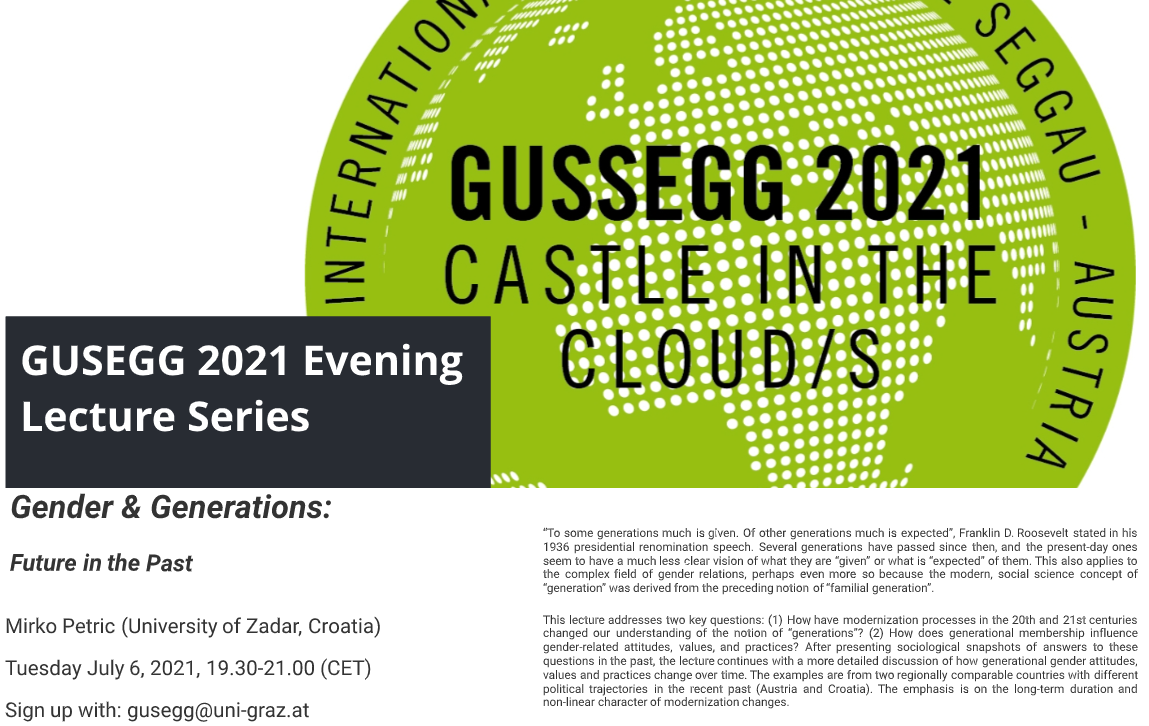“To some generations much is given. Of other generations much is expected”, Franklin D. Roosevelt stated in his 1936 presidential renomination speech. Several generations have passed since then, and the present-day ones seem to have a much less clear vision of what they are “given” or what is “expected” of them. This also applies to the complex field of gender relations, perhaps even more so because the modern, social science concept of “generation” was derived from the preceding notion of “familial generation”.
This lecture addresses two key questions: (1) How have modernization processes in the 20th and 21st centuries changed our understanding of the notion of “generations”? (2) How does generational membership influence gender-related attitudes, values, and practices? After presenting sociological snapshots of answers to these questions in the past, the lecture continues with a more detailed discussion of how generational gender attitudes, values and practices change over time. The examples are from two regionally comparable countries with different political trajectories in the recent past (Austria and Croatia). The emphasis is on the long-term duration and non-linear character of modernization changes.
Tuesday, July 6, 19:30-21:00 (CEST)
Sign up with gusegg@uni-graz.at
